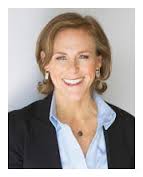Contributor: Shreya Zaveri
Work and Life is a radio program hosted by Stew Friedman, director of the Wharton Work/Life Integration Project, on Sirius XM’s Channel 111, Business Radio Powered by Wharton. Every Tuesday at 7 pm EST, Stew speaks with everyday people and the world’s leading experts about creating harmony among work, home, community, and the private self (mind, body, and spirit).
On Work and Life Stew Friedman spoke with Deborah Epstein Henry, Co-Founder and Managing Director of Bliss Lawyers and President of Flex-Time Lawyers and co-author of Finding Bliss: Innovative Legal Models for Happy Clients and Happy Lawyers.
The following are edited excerpts of their conversation.
Stew Friedman: How do law firms differ from the typical work environment when it comes to integrating work and life?
Deborah Henry:  The biggest differentiator is the billable hour. It means that people who are looking for more balance in their lives often can’t compete for advancement. Law firms gain revenue by increasing billable hour rates or amount of billable hours. Expectations for more billable hours get ratcheted up and so billable hour drivers are a point of distinction between law and other industries. At the same time, there is the advantage of billable hours: the firm generates the same revenue from wherever you bill, and so firms can capitalize on that flexibility. However, most firms are reluctant to take on that flexibility of location to maximize employee satisfaction. They’re mostly worried about losing control of their workforce. There’s a certain pressure that exists in the workplace environment where everyone is worried that the person next to them is generating more billable hours for the firm. When you eliminate that face-time culture, there’s a fear in law firm management that you’ll lose a key motivator for revenue generation.
The biggest differentiator is the billable hour. It means that people who are looking for more balance in their lives often can’t compete for advancement. Law firms gain revenue by increasing billable hour rates or amount of billable hours. Expectations for more billable hours get ratcheted up and so billable hour drivers are a point of distinction between law and other industries. At the same time, there is the advantage of billable hours: the firm generates the same revenue from wherever you bill, and so firms can capitalize on that flexibility. However, most firms are reluctant to take on that flexibility of location to maximize employee satisfaction. They’re mostly worried about losing control of their workforce. There’s a certain pressure that exists in the workplace environment where everyone is worried that the person next to them is generating more billable hours for the firm. When you eliminate that face-time culture, there’s a fear in law firm management that you’ll lose a key motivator for revenue generation.
SF: I know that you’ve been working on the issue of value-based billing. How does that affect the structure of law firm compensation and pricing?
DH: Since 2008, general counsels of companies have a lot more leverage and are putting pressure on law firms to demonstrate value other than by number of hours logged. It’s driven by the client and global competition. The idea that value could be measured in some other way that hours is increasingly a compelling argument in the legal profession. In Finding Bliss, we talk about the Value Measure, which has three components: the quality of the work, the efficiency, and the results achieved. With those three factors in mind, you can be deliberate in creating value for the client, and it’s taking law firms from the billable hour cycle to measuring value as their clients do. I would say about 30% of the revenue generated from firms is typically generated through alternate value measures. The predominant method, however, is still billable hours.
SF: You also talk about how the very architecture of work is a competitive advantage for some firms that are eliminating the traditional office layout.
DH: That’s right, it’s about being innovative with space. New models such as virtual practices with very low overheads are putting pressure on the traditional model which includes fancy offices and artwork on the walls. A traditional law firm has about a third of their overhead going to real estate. So if you can eliminate a third of the costs of the traditional law firm, you can be generous in terms of paying your employees or you can pass along significant savings to your clients.
I co-authored Finding Bliss with the two other founders of Bliss Lawyers, and we are founded on two innovations. First, our lawyers work at fortune 500 companies, but our internal team works remotely, so we have a no bricks and mortar infrastructure and can compete on costs. Second, we operate on a secondment model – that is, on temporary assignments. We are able to lend out lawyers to clients for the duration of the engagement, capitalizing on ways to diminish costs.
SF: It sounds like Bliss Lawyers is a catalyst for project-based employment.
DH: There have been contract workers in the legal profession for years, but this brings in people who are very well credentialed and trained who are making a choice about the way they want to integrate the practice of law with the rest of their life. This model works well for the person who wants to pick their engagement and have that kind of flexibility.
SF: Is there an element of risk in an engagement model? You don’t know where your next client is coming from. There’s also the lack of long term commitment from existing clients.
DH: To cover some of that, we are able to compensate our lawyers very handsomely. The engagements are longer than traditional projects, around a year, and sometimes convert to permanent engagements if the client wishes to bring them on full-time. It’s a way for lawyers to add to their experience and credentials if they want to transition into companies.
But there’s also the changing demographic of the people who are raising their hands for work-life engagement. Historically, it’s been the working mom. Now, we’re seeing senior lawyers, especially men. These are people at the other end of the arc of the careers now speaking about work-life engagement.
SF: “Bliss” is a wonderful word. And, as the introduction to your book notes, “bliss” and “lawyers” typically don’t get used in the same sentence. How are you helping lawyers find bliss?
DH: It really strikes us that so many lawyers are unhappy. A happy lawyer is a productive and profitable one. We talk about seven themes in the book: innovation, value, predictability and trust, flexibility, diversity and inclusion, talent development, and relationship building. There is opportunity for change and innovation for each of those seven themes.
We’re really trying to anticipate the changing needs of the legal profession and our clients. Happiness is not a luxury, it increases performance, retention, satisfaction and loyalty.
You can follow Debbie on Twitter @debepsteinhenry or visit her websites, blisslawyers.com and flextimelawyers.com.
Join Work and Life next Tuesday at 7 pm on Sirius XM Channel 111. Visit Work and Life for a full schedule of future guests.
About the Author
Shreya Zaveri  is a junior in the Wharton School studying Management and OPIM with an International Relations minor. She also serves as a vice president for the Work-Life Integration Project Student Advisory Board.
is a junior in the Wharton School studying Management and OPIM with an International Relations minor. She also serves as a vice president for the Work-Life Integration Project Student Advisory Board.
Leave a Reply